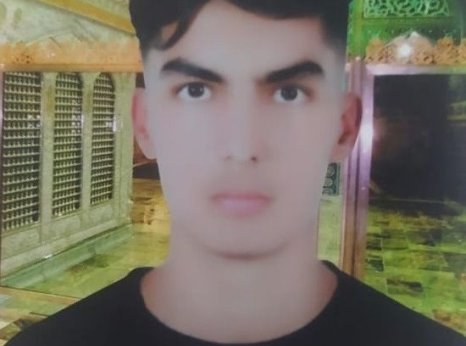Iran: Youth Arrested At 17 At Risk Of Imminent Execution

Iranian authorities arrested Mohammad Reza Azizi on 18 September 2020 and denied him access to a lawyer during interrogations. According to legal documents, he “confessed” to acting in self-defence during an altercation where he sustained injuries and another individual died. Medical documents reviewed by Amnesty International show that Mohammad Reza Azizi required hospital care on the date after the incident. According to legal documents reviewed by Amnesty International, the Legal Medicine Organization of Iran (LMOI) concluded that Mohammad Reza Azizi had attained “mental growth and maturity” at the time of the crime without providing an explanation of how it reached this conclusion beyond noting he was able to provide his first and last name. Amnesty International understands that Mohammad Reza Azizi’s lawyers raised concerns that conclusions were made without “a detailed investigation”.
Amnesty International has repeatedly urged the Iranian authorities, including judges and doctors from the Legal Medicine Organization of Iran, to halt “maturity assessment” processes that inherently violate children’s human rights and risk subjecting them to the death penalty, and instead adopt a position that treats all individuals under 18 as less mature and culpable than adults, in accordance with international juvenile justice principles. While Article 91 of the Islamic Penal Code grants judges discretion to replace the death penalty with an alternative sentence if they find that there are doubts about the individual’s full “maturity” at the time of the crime, in practice, there are no policies and guidelines in place on the types of evidence and the standards of proof needed to rebut the presumption of maturity. Amnesty International has repeatedly called on the Iranian authorities, including parliamentarians, to amend Article 91 to completely abolish the use of the death penalty for all child offenders, without any exception or judicial discretion.
Iran’s criminal justice system also facilitates the violation of the right to life, perpetuates a cycle of violence and seeks to place the responsibility for state-sanctioned killings of human beings on those who have lost their next of kin to murder. Under Iran’s laws, qesas (retribution-in-kind) is a system of equivalent retaliation which involves subjecting those convicted of murder to the same fate as that suffered by the victim of murder - that is death. The law grants this power to the family of the murder victim who may demand and carry out the killing of the defendant or grant pardon in exchange for “blood money” (diyah). In death penalty cases involving persons convicted of crimes taking place when they were children and based on qesas, the Iranians authorities frequently mislead the public and the international community by claiming that the final decision on carrying out or halting the execution is out of their hands and that all they can do is to mediate and encourage the family of the victim to grant pardon in exchange for “blood money” (diyah). Amnesty International emphasizes that these claims are dishonest and reflect a fundamental lack of respect for children’s rights by the Iranian authorities. Iranian courts sentence individuals to death for crimes that took place when they were children, in flagrant violation of international law, and Iranian courts subsequently reject repeated requests to commute these death sentences.
In the aftermath of the “Woman Life Freedom” of September to December 2022 uprising, Iranian authorities have intensified their use of the death penalty to instil fear among the population and tighten their grip on power. In 2023, authorities carried out at least 853 executions. Amnesty International recorded the executions of five individuals in 2023 who were children at the time of the crime: Adel Damani, Ali Najafi, Abdolsamad Shahuzehi, Hamidreza Azari and Mahmoud Rigi. In 2024, Amnesty International has recorded the execution of at least one individual who was a child at the time of the alleged crime - Mehdi Jahanpour - in September 2024.
The absolute prohibition on the use of the death penalty against persons who were under the age of 18 at the time of the crime for which they have been convicted is provided in the International Covenant on Civil and Political Rights and the Convention on the Rights of the Child, both of which Iran has ratified. It is also recognized as a peremptory norm of customary international law, which means it is accepted and recognized by the international community of states as a norm which is binding on all states and from which no derogation is permitted. Amnesty International opposes the death penalty in all cases without exception, regardless of the nature or the circumstances of the crime; guilt, innocence or other characteristics of the individual; or the method used by the state to carry out the execution.